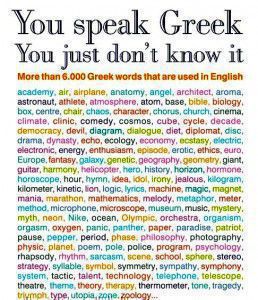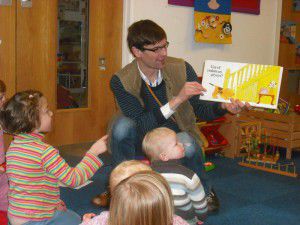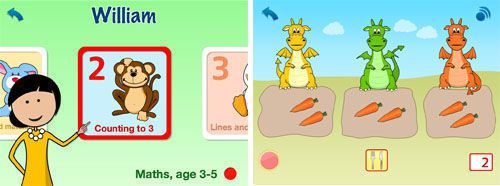The Art of Interpreting
Kana Tsumoto has just finished her internship with us, translating and recording our maths app into Japanese. In this post, she explains why she’s excited about her chosen career in interpreting.
The other night when I stayed at a youth hostel, I had an uncomfortable conversation with one of my roommates. I told her how I just finished a university course in Translation and Interpreting and how I am about to embark on my new career as a translator/interpreter. Then, in a not so roundabout way, she started to criticise my future profession, describing it as a boring task; merely repeating what has already been stated but in a different language! I shouldn’t have let her get on my nerves, but she did. I endured this for three days, and on the fourth she left. The initial joy felt at her absence soon descended into shame. It suddenly dawned on me that I had been a massive coward! I had failed to stand up for my profession, failed to defend it against a misinformed foe! Since then, I have been composing in my mind a grand speech on how wonderful translating and interpreting is. I would like to take this opportunity to share this speech, and dedicate it to my roommate in 303.
 Interpreting is, in fact, very exciting and very demanding! You definitely do need an extremely good command of the language you are interpreting into/from, but surprisingly more important are other skills including for example research management skills, communication skills, a sense of conciseness and even drawing skills! I was flabbergasted myself by this when I first started the course. Let me go through some of these skills with you.
Interpreting is, in fact, very exciting and very demanding! You definitely do need an extremely good command of the language you are interpreting into/from, but surprisingly more important are other skills including for example research management skills, communication skills, a sense of conciseness and even drawing skills! I was flabbergasted myself by this when I first started the course. Let me go through some of these skills with you.
Communicating skills: Interpreting belongs to the service industry. So as a service, being able to communicate with your clients is a vital skill. Interpreters need flexible communication skills to survive in many different environments, such as court rooms and their tense atmosphere, to the bonhomie found at sales talks, or the acute technical details found at academic conferences.
Researching: Interpreters spend a significant amount of time on research. This takes place prior to the actual performance. An hour long session of interpreting can require days, even weeks, of research for it to be successful. Research allows the interpreter to familiarise themselves with the terminology and theories that are going to be employed during a speech or conference. Interpretation without research is in some cases impossible. If you don’t know what is being said then how can you translate?! A good interpreter immerses themselves within their particular field, becoming expert in their chosen subject.

Drawing skills: We interpreters are artists when it comes to taking notes. During consecutive interpreting, we usually make quick notes of the speech. But of course we don’t have much time for writing down stuff, nor can we spend much time looking at the notes when performing; we have to talk to the audience, not to our notes! So we take notes through the medium of drawing, or rather, in symbols! The symbols need to be simple enough to scribble down and meaningful enough to allow us to understand the logical flow and the details in just one glance.
Last but definitely not least…
Sense of conciseness: This, I find most difficult to improve (I’m going to have trouble explaining conciseness concisely, oh dear!… But here I go!). The best translation that suits the context and the intention of the speech may not be the translation you find in the dictionary. A good interpreter never burdens the audience with the task of trying to understand the interpretations; they are like a guide on a cruise liner, taking with them passengers for a seaside tour in the greatest of comfort. A bad interpreter however, forces their passengers to balance out the back of the boat on water skis, whilst showing them the same scenery. Exercising the skills of conciseness in the midst of interpreting is not an easy task, and it comes only through lots and lots of practice. It is an art form, and when it is done right it is beautiful!
As you can see, interpreting can be a very demanding job. It comes with everyday hard work. The process of striving for something and then accomplishing it is definitely exciting. Now put that in your pipe and smoke it, my roommate from the hostel! 😉
Kana
So, did you know you can speak Greek?
Today’s blog post is written by Konstantia Sotiropoulou, who’s been helping us to translate and record our Maths apps in Greek.
I bumped into the picture below a while ago and I thought this should be interesting. Undoubtedly, Greek is one of the richest languages in the world and is distinguished by an extensive vocabulary. In the past, the Guinness Book of Records ranked the Greek language as the richest in the world with 5 million words and 70 million word types!

The front cover of You speak Greek, You just don't know it, a book by Annie Stefanides (Ianos, 2010)
Well, many of these words have been widely borrowed into other languages, including English. Greek roots are often used to coin new words for other languages, especially in the sciences and medicine. Mathematics, physics, astronomy, democracy, philosophy, athletics, theatre, rhetoric, baptism and hundreds of other words are Greek. Moreover, Greek words and word elements continue to be productive as a basis for coinages: anthropology, photography, telephony, isomer, biomechanics, cinematography, etc. and form, with Latin words, the foundation of international scientific and technical vocabulary, e.g. all words ending with –logy (“discourse”). Interestingly, an estimated 12% of the English vocabulary has Greek origin. Greek has contributed to English in several ways, including direct borrowings from Greek and indirectly through other languages (mainly Latin or French).
In a typical 80,000-word English dictionary, about 5% of the words are directly borrowed from Greek; this is about equivalent to the vocabulary of an educated speaker of English (for example, “phenomenon” is a Greek word and even obeys Greek grammar rules as the plural is “phenomena”). However, around 25% are borrowed indirectly. This is because there were many Greek words borrowed in Latin originally, which then filtered down into English because English borrowed so many words from Latin (for example, “elaiwa” in Greek evolved into the Latin “oliva”, which in turn became “olive” in English).
Greek and Latin are the predominant sources of the international scientific vocabulary. Greek is often used in coining very specialized technical or scientific words, however, so the percentage of words borrowed from Greek rises much higher when considering highly scientific vocabulary (for example, “oxytetracycline” is a medical term that has several Greek roots).
In education, an excellent way to build vocabulary is teaching students how to find roots in words. Since many words have their base in the Greek language, beginning with the roots from this ancient language is a good place to start. This list of English words with Greek origin will give students a basis for further exploration into the roots of the English language.
Now you that you have seen how many Greek words you know, I am going to teach you some more common ones like “kalimera” which means “good morning”, “Ya sou” which means “hi”, “Me lene” which means “my name is” and “efharisto” which means “thank you”. And if you are interested in learning more and discovering how many you already know, try EuroTalk’s uTalk Greek app.
And who am I to be talking about the Greek language? I am the Greek intern of EuroTalk, who translated and recorded into Greek their new Maths apps for young children. An interesting and fun experience for a young translator like me. I have to say that I really enjoyed working in this office, which gives you the sense of a family home. People here are calm and friendly, the kitchen is fully equipped with all kinds of snacks and during the day we get to listen to nice music while working! How amazing is that?
I started towards the end of January by translating the scripts of the app and soon after I recorded the first topics. I caught myself playing the app more than I needed to, as the games are really fun! I am sure young kids will truly enjoy it while learning basic Mathematics rules. And I know that my three-year-old niece, who will be playing the app in a few weeks, will at least have a constructive and educational first contact with technology!
So, whether you want to take up a new language or help your child have a nice start with Maths, you know that EuroTalk is here for you!
* There is an interesting video on YouTube that explains the History of English and the influence that it had from other languages!
Konstantia
Don’t give up: New Year’s Resolutions
We’re now a week and a half into the New Year, and it’s safe to say a lot of people will already have given up on the promises they made to themselves when the clock struck midnight on January 1st. Whether you’re trying to lose weight, quit smoking, learn a new skill or save money, here are our tips to help you stick with it.
1. Set yourself manageable goals. Instead of saying ‘I’m going to lose weight’, decide how much you want to lose in a set time frame, and reward yourself when you get there.
2. Focus – don’t try and do everything at once. Choose one or two changes you want to make to your life and concentrate on those.
 3. Write your resolutions down. Seeing them in black and white will help you to establish exactly what you want to achieve.
3. Write your resolutions down. Seeing them in black and white will help you to establish exactly what you want to achieve.
4. Only set targets that you really care about. If it’s not important to you, it’s so much easier to lose interest. Think about why you’re doing it – if you can’t think of a reason, it’s probably not worth doing.
5. Tell friends and family what you want to achieve. It’ll be harder to give up if other people are keeping an eye on you.
6. If you do have a wobble, don’t use that as an excuse to give up. Put it down as a one-off and start again.

7. Take your time. You don’t have to achieve all your goals on the first day. If your goal is to exercise more, start by going for a run to see how you feel, before you rush out and spend lots of money on a gym membership.
If you didn’t set any New Year’s Resolutions this year, it’s not too late! If you want to make some changes in your life, you don’t have to wait for January 1st to roll around again. Why not make a start today?
Learning a language is often a popular New Year’s Resolution, so if you’ve decided 2013 is the year to brush up on your German, or start learning Japanese, have a look at our website to see how we can help you get started.
Good luck!
Join the revival – learn Cornish
Today we have a guest post from Elizabeth Stewart, from the Cornish Language Partnership, on why Cornish is a great language to learn.
The Cornish language, or Kernewek as it is known by those who speak it, is enjoying a hugely successful revival. Those who are fortunate enough to live in the Duchy, or visit it on holiday, have only to look around them to see proof of this, with bilingual road signs springing up on street corners and businesses proudly asserting their origin by naming their products in Cornish. It’s an exciting era for the language, and learning has just become easier and more enjoyable with the release of three new EuroTalk resources in Cornish.
Cornish is a Celtic language and is most closely related to Welsh and Breton, though it also has strong links to the other Celtic languages of Irish Gaelic, Scots Gaelic and Manx. Up until the mid sixteenth century it was the main language spoken across Cornwall but pressure from English caused Cornish to decline and retreat to the far west. By the beginning of the nineteenth century Cornish had all but died out as a community language, but in 1904 Henry Jenner published a Handbook of the Cornish Language which kick started the revival of Cornish as a living, spoken language.
Since then the number of people learning and using the language has escalated, with Cornish receiving official recognition as a minority language in 2002 under the Council of Europe’s Charter for Regional or Minority Languages.

Skol Veythrin Karenza - Pre-school in Pool (photo Emilie Champliaud)
Today Cornish is one of the fastest growing languages in the world, and this is set to accelerate with more schools than ever choosing to teach Cornish, from pre-schools (including a fully bilingual one that teaches through the medium of both Cornish and English) right through to secondary schools.
Businesses are also embracing the use of Cornish. Local enterprises such as Polgoon Vineyard have made a point of choosing Cornish branding as a mark of local origin and several of their products are named in Cornish. Meanwhile national companies such as JD Wetherspoon have a policy of putting up bilingual signage in their Cornish pubs, as well as giving them names in Cornish such as “Try Dowr” (Three Rivers) in Truro and “Chapel an Gansblydhen” (Centenary Chapel) in Bodmin.
Cornish is also used in the community, with Scouts and Guides learning their motto and promise in Cornish, gig rowers naming their gigs in Cornish and an increasing number of individuals using Cornish for everything from house names to children’s names, wedding vows to tattoos.
If you would like to join the growing number of people who are taking an interest in Cornish, order your copy of either Talk More (suitable for adult beginners) or Talk the Talk (suitable for younger beginners) from EuroTalk today, or if you’ve already been learning for a while try taking your Cornish a bit further with Talk Business.
For more information about the Cornish language, visit www.magakernow.org.uk.



